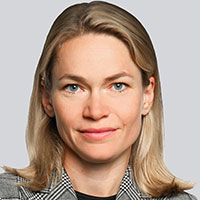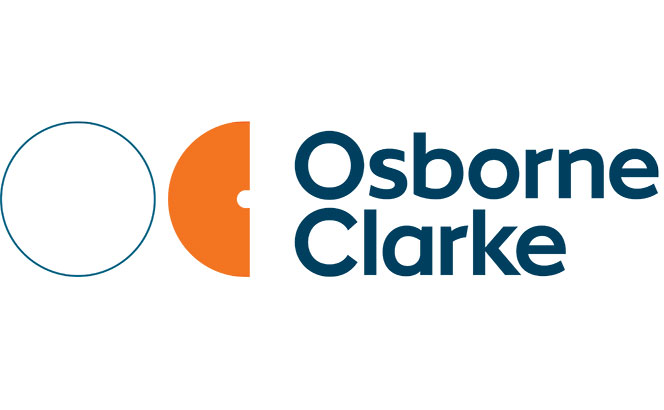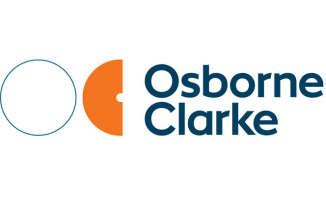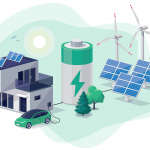1. Can you describe the current legal framework governing renewable energy in Germany and any significant regulatory developments that have occurred in the last year?
In a nutshell, the legal framework for renewable energy in Germany consists of a priority grid connection claim and support via the Erneuerbare-Energien-Gesetz (EEG) feed-in tariff for smaller installations and the market premium for larger installations. The market premium is paid by the grid operator and compensates for the difference between a bid awarded in a tender and the market prices.
The legal framework for renewable energy in Germany remains complex and dynamic. In the beginning of 2023, new privileges under building planning law were introduced for photovoltaic (PV) systems, hydrogen storages and electrolysers. Further, the Council Emergency Regulation (EU) 2022/2577 provided for exemptions from lengthy environmental impact and species conservation assessments in the approval process for certain renewables projects. Equally, the stipulation of the overriding public interest in renewable energy and battery storage systems served to speed up approval processes. In addition, the solar industry is eagerly awaiting the introduction of ‘Solar Package I’, the German government’s initiative to streamline the expansion of PV systems by reducing bureaucratic hurdles. This includes regulatory simplifications and initiatives for balcony PV systems and new forms of residential PV consumption. The law was strongly promoted in 2023 but will not be passed until early 2024.
Regarding hydrogen, the adoption of the Commission Delegated Regulation (EU) 2023/1184 (Delegated Regulation) was an important milestone at EU level, as it defines the conditions under which hydrogen can be considered green. It has recently been transposed into national law.
As digital real-time energy data will form the basis of the future renewable energy supply system, the German legislator also created a new legal framework for the installation of smart meters in 2023. The law on the resumption of the digitisation of the energy transition regulates the rollout of smart meters and the rights and obligations arising therefrom. The law provides legal clarity in a dynamic market dominated by young, innovative companies.
2. Germany is known for its ‘Energiewende’ or energy transition policy. From a legal perspective, what are the biggest challenges in implementing this policy, and how can they be overcome?
The German energy market and energy transition in particular is heavily influenced by direct and indirect subsidies. In 2023, this strong reliance on state funds had unforeseen effects and led to litigation before German and EU courts. At the end of 2023, a judgment by the Federal Constitutional Court struck down €60bn of legislation intended to promote hydrogen projects and lower electricity prices. According to the court, the financing mechanism through the Climate and Transformation Fund chosen by the legislator violated the constitutionally binding debt brake. In addition, several lawsuits are pending before the same court against the revenue-skimming mechanism for renewable energy plants introduced in late 2022. The claiming parties argue that the revenue-skimming mechanism violates the constitutional principles on state financing. Both developments severely impaired investment security in Germany.
Legal uncertainties also surround the grid connection of renewable energy plants and battery energy storage systems. The competition between several operators for a single connection point has been the basis for an important judgment by the Federal Court of Justice last year. One of the major challenges of the energy transition is therefore for policymakers to provide the necessary stable regulatory framework. This applies in particular to the integration of intermittent renewable energies. One notable development in this regard is the introduction of a capacity market through the long-awaited and recently published Power Plant Strategy – a mechanism that has not been part of Germany’s ‘energy only’ market to date. Finally, one reform that will help the integration and acceptance of renewables is the Federal Network Agency’s proposal to distribute grid fees more equitably, as they are currently distributed regionally, disproportionately burdening customers in windy but sparsely populated northern and eastern Germany.
3. In your experience, what are the key considerations and common pitfalls in negotiating energy contracts in Germany, especially in the context of renewable energy projects?
Currently, we face various challenges when it comes to structuring power purchase agreements (PPAs) for the supply of electrolysers with renewable electricity for the production of green hydrogen. The background to this is the Delegated Regulation, which sets strict requirements for the supply of renewable electricity. Hydrogen can only be considered ‘green’, ie it will count against the EU’s renewable targets, if these requirements are met.
One challenging requirement is that the renewable electricity plant may not have received operating or investment subsidies (Article 5 para 2 lit b of the Delegated Regulation). At present, it is still possible to fall back on exemptions. However, these only apply for a transitional period. Another pitfall is the European Commission’s view on the necessity of the conclusion of a ‘direct’ PPA between the producer and the offtaker (electrolyser). When drafting PPAs, future regulatory changes have to be addressed in order to provide for a stable and long-term contractual relationship.
4. How has recent EU legislation affected German energy law and policy, particularly in relation to renewable energy, energy efficiency and greenhouse gas emissions?
EU legislation has a major impact on the national legal framework in Germany. One recent example is RED III (Directive (EU) 2023/2413), which is designed to ensure that the EU’s ambitious climate goals are met. RED III increases the target for the share of renewable energy in the EU’s energy consumption to 42.5% by 2030. A new binding sub-target in transport includes a combination of electricity-based renewable fuels (renewable fuels of non-biological origin (RFNBOs)) and advanced biofuels. This sub-target is 5.5%, of which 1% is to be covered by RFNBOs.
Another important milestone in EU legislation is Regulation (EU) 2023/956, which establishes a new EU Carbon Border Adjustment Mechanism (CBAM). By raising the cost of imports of products with carbon-intensive production processes, CBAM aims to help local manufacturers compete. The transitional phase began in 2023. Companies will have to fulfil strict documentation and reporting requirements. From 2026, companies will have to financially compensate for the emissions generated from the production of imported goods.
5. Looking towards the future, what emerging trends or innovations in energy law do you believe will be most significant for Germany?
Looking forward, important trends for the coming years will be the full deployment of flexibility in the German electricity market, technical developments and innovations in the fields of carbon capture and storage (CCS) and carbon capture and utilisation (CCU), and the alignment of energy generation and consumption through further digitalisation and the use of AI.
Regarding flexibility and energy storage, the full implementation of EU legislation on the operation of battery storage systems will accelerate their market entry in the future. The energy storage strategy recently published by the German Ministry of Economic Affairs was a step in the right direction in this regard.
In order to meet its climate targets, it is argued that Germany will inevitably have to rely on CCS and CCU technologies. While the primary focus remains on reducing emissions and transitioning to renewable energy, CCS and CCU are essential to address emissions that are difficult or impossible to avoid. The German government has outlined its intention to create the necessary legal framework to enable the infrastructure for the transport, storage and utilisation of carbon dioxide through the Carbon Management Strategy presented by the Federal Ministry of Economics and Technology.
Finally, the developing digitalisation of the energy industry and the deployment of AI might help to align production and consumption and thereby reduce Germany’s overall energy demand and carbon footprint.
For more information contact

Anna von Bremen
anna.bremen@osborneclarke.com

Dr Daniel Breur
daniel.breuer@osborneclarke.com
















